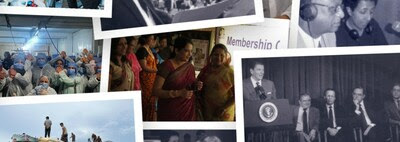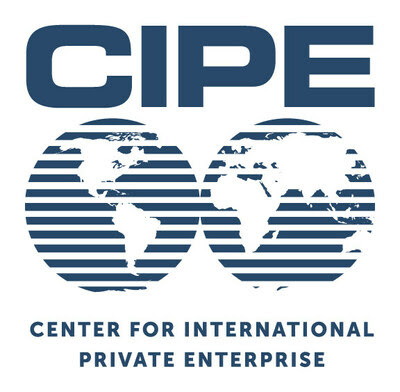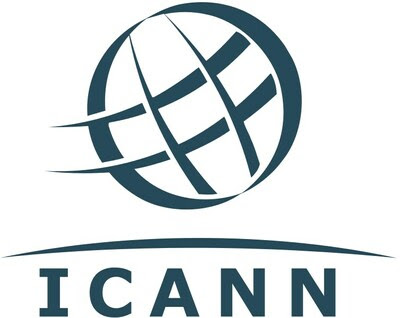Ministers and representatives from twelve African countries have committed themselves, and laid out their plans, to end AIDS in children by 2030. International partners have set out how they would support countries in delivering on those plans, which were issued at the first ministerial meeting of the Global Alliance to end AIDS in children.
The meeting hosted by the United Republic of Tanzania, marks a step up in action to ensure that all children with HIV have access to life saving treatment and that mothers living with HIV have babies free from HIV. The Alliance will work to drive progress over the next seven years, to ensure that the 2030 target is met.
Currently, around the world, a child dies from AIDS related causes every five minutes.
Only half (52%) of children living with HIV are on life-saving treatment, far behind adults of whom three quarters (76%) are receiving antiretrovirals.
In 2021,160 000 children newly acquired HIV. Children accounted for 15% of all AIDS-related deaths, despite the fact that only 4% of the total number of people living with HIV are children.
In partnership with networks of people living with HIV and community leaders, ministers laid out their action plans to help find and provide testing to more pregnant women and link them to care. The plans also involve finding and caring for infants and children living with HIV.
The Dar-es-Salaam Declaration on ending AIDS in children was endorsed unanimously.
Vice-President of the United Republic of Tanzania, Philip Mpango said, “Tanzania has showed its political engagement, now we need to commit moving forward as a collective whole. All of us in our capacities must have a role to play to end AIDS in children. The Global Alliance is the right direction, and we must not remain complacent. 2030 is at our doorstep.”
The First Lady of Namibia Monica Geingos agreed. “This gathering of leaders is uniting in a solemn vow – and a clear plan of action – to end AIDS in children once and for all,” she said. “There is no higher priority than this.”
Twelve countries with high HIV burdens have joined the alliance in the first phase: Angola, Cameroon, Côte d’Ivoire, the Democratic Republic of the Congo (DRC), Kenya, Mozambique, Nigeria, South Africa, the United Republic of Tanzania, Uganda, Zambia, and Zimbabwe.
The work will centre on four pillars across:
- Early testing and optimal treatment and care for infants, children, and adolescents;
- Closing the treatment gap for pregnant and breastfeeding women living with HIV, to eliminate vertical transmission;
- Preventing new HIV infections among pregnant and breastfeeding adolescent girls and women; and
- Addressing rights, gender equality and the social and structural barriers that hinder access to services.
UNICEF welcomed the leaders’ commitments and pledged their support. “Every child has the right to a healthy and hopeful future, but for more than half of children living with HIV, that future is threatened,” said UNICEF Associate Director Anurita Bains. “We cannot let children continue to be left behind in the global response to HIV and AIDS. Governments and partners can count on UNICEF to be there every step of the way. This includes work to integrate HIV services into primary health care and strengthen the capacity of local health systems.”
“This meeting has given me hope,” said Winnie Byanyima, Executive Director of UNAIDS. “An inequality that breaks my heart is that against children living with HIV, and leaders today have set out their commitment to the determined action needed to put it right. As the leaders noted, with the science that we have today, no baby needs to be born with HIV or get infected during breastfeeding, and no child living with HIV needs to be without treatment. The leaders were clear: they will close the treatment gap for children to save children’s lives.”
WHO set out its commitment to health for all, leaving no children in need of HIV treatment behind. “More than 40 years since AIDS first emerged, we have come a long way in preventing infections among children and increasing access to treatment, but progress has stalled,” said Dr Tedros Adhanom Ghebreyesus, WHO Director-General. “The Global Alliance to End AIDS in Children is a much-needed initiative to reinvigorate progress. WHO is committed to supporting countries with the technical leadership and policy implementation to realise our shared vision of ending AIDS in children by 2030.”
Peter Sands, Executive Director of The Global Fund said, “In 2023, no child should be born with HIV, and no child should die from an AIDS-related illness. Let’s seize this opportunity to work in partnership to make sure the action plans endorsed today are translated into concrete steps and implemented at scale. Together, led by communities most affected by HIV, we know we can achieve remarkable results.”
PEPFAR’s John Nkengasong, U.S. Global AIDS Coordinator, said he remains confident. “Closing the gap for children will require laser focus and a steadfast commitment to hold ourselves, governments, and all partners accountable for results. In partnership with the Global Alliance, PEPFAR commits to elevate the HIV/AIDS children’s agenda to the highest political level within and across countries to mobilize the necessary support needed to address rights, gender equality and the social and structural barriers that hinder access to prevention and treatment services for children and their families.”
EGPAF President and CEO, Chip Lyons, said that the plans shared, if implemented, would mean children were no longer left behind. “Often, services for children are set aside when budgets are tight or other challenges stand in the way. Today, African leaders endorsed detailed plans to end AIDS in children – now is the time for us all to commit to speaking up for children so that they are both prioritized and included in the HIV response.”
Delegates emphasized the importance of a grounds-up approach with local, national and regional stakeholders taking ownership of the initiative, and engagement of a broad set of partners.
“We have helped shape the Global Alliance and have ensured that human rights, community engagement and gender equality are pillars of the Alliance,” said Lilian Mworeko, Executive Director of the International Community of Women living with HIV in Eastern Africa on behalf of ICW, Y+ Global and GNP+. “We believe a women-led response is key to ending AIDS in children.”
The alliance has engaged support from Africa REACH and other diverse partners and welcomes all countries to join.
Progress is possible. Sixteen countries and territories have already been certified for validation of eliminating vertical transmission of HIV and/or syphilis; while HIV and other infections can pass from a mother to child during pregnancy or while breastfeeding, such transmission can be interrupted with prompt HIV treatment for pregnant women living with HIV or pre-exposure prophylaxis (PrEP) for mothers at risk of HIV infection. .
Last year Botswana was the first African country with high HIV prevalence to be validated as being on the path to eliminating vertical transmission of HIV, which means the country had fewer than 500 new HIV infections among babies per 100 000 births. The vertical transmission rate in the country was 2% versus 10% a decade ago.
UNAIDS, networks of people living with HIV, UNICEF and WHO together with technical partners, PEPFAR and The Global Fund unveiled the Global Alliance to end AIDS in children in July 2022 at the AIDS conference in Montreal, Canada. Now, at its first ministerial meeting, African leaders have set out how the Alliance will deliver on the promise to end AIDS in children by 2030.
Media Contacts
Charlotte Sector
UNAIDS
Email: sectorc@unaids.org
Ann Vaessen
The Global Fund
Email: ann.vaessen@theglobalfund.org
Sonali Reddy
Communications officer
WHO
Mobile: +41 79 509 0647
Email: reddys@who.int
Lazeena Muna-Mcquay
UNICEF
Email: lmunamcquay@unicef.org
Source: World Health Organization
 , [INVNT GROUP]’s brand strategy firm, is expanding its global operations into Europe and the Middle East, growing its storytelling reach across the region.
, [INVNT GROUP]’s brand strategy firm, is expanding its global operations into Europe and the Middle East, growing its storytelling reach across the region. specializes in bringing story strategies to the executive level, creating master brand narratives that act as brands’ operating and organizing principles. The firm helps its clients develop unusually compelling brand narratives, architecture, identity and tone-of-voice, all underpinned by a robust research methodology and deep understanding of contemporary consumer behaviors. For more information visit: www.folkhero.com
specializes in bringing story strategies to the executive level, creating master brand narratives that act as brands’ operating and organizing principles. The firm helps its clients develop unusually compelling brand narratives, architecture, identity and tone-of-voice, all underpinned by a robust research methodology and deep understanding of contemporary consumer behaviors. For more information visit: www.folkhero.com THE GLOBAL BRANDSTORY PROJECT was established as an evolution of the founding global live brand storytelling agency INVNT in 2008, with a vision to provide consistent, meaningful, well-articulated BrandStory across all platforms. With offices in New York, Sydney, London, Singapore, Dubai, San Francisco, Stockholm, Detroit, and Washington D.C.; headed by President and CEO, Scott Cullather, [INVNT GROUP] represents a growing portfolio of complementary disciplines designed to help forward-thinking organizations everywhere, impact the audiences that matter, anywhere. The GROUP consists of modern brand strategy firm, Folk Hero; creative-led culture consultancy, Meaning; production studio & creative agency, HEVĒ; events for colleges and universities, INVNT Higher Ed; digital innovation division, INVNT.ATOM; creative multimedia experience studio, Hypnogram; and the original live brand storytelling agency, INVNT. For more information visit: www.invntgroup.com
THE GLOBAL BRANDSTORY PROJECT was established as an evolution of the founding global live brand storytelling agency INVNT in 2008, with a vision to provide consistent, meaningful, well-articulated BrandStory across all platforms. With offices in New York, Sydney, London, Singapore, Dubai, San Francisco, Stockholm, Detroit, and Washington D.C.; headed by President and CEO, Scott Cullather, [INVNT GROUP] represents a growing portfolio of complementary disciplines designed to help forward-thinking organizations everywhere, impact the audiences that matter, anywhere. The GROUP consists of modern brand strategy firm, Folk Hero; creative-led culture consultancy, Meaning; production studio & creative agency, HEVĒ; events for colleges and universities, INVNT Higher Ed; digital innovation division, INVNT.ATOM; creative multimedia experience studio, Hypnogram; and the original live brand storytelling agency, INVNT. For more information visit: www.invntgroup.com





